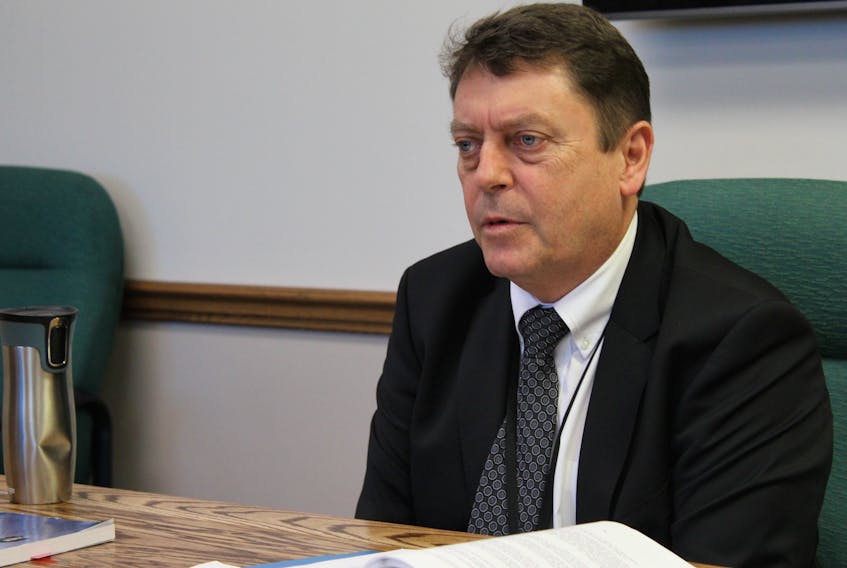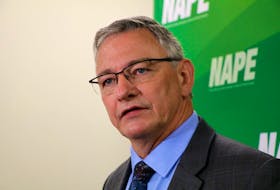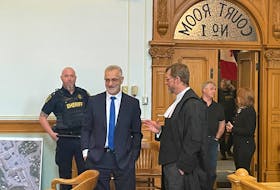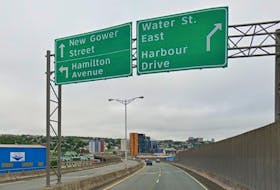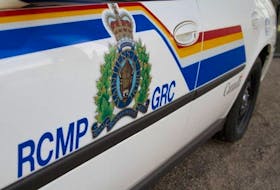ST. JOHN'S, N.L. — If and when a new slate of legislators is elected in Newfoundland and Labrador, one of the first orders of business might be to ensure the chaos of the past two weeks never happens again.
That’s going to require changes to the Elections Act.
The outbreak of the COVID-19 variant caused an emergency that no legislation was equipped to handle. No one, it seemed, had the authority to do anything substantial about the election, other than to delay the vote for a day or two.
For a couple of days, the chief officers of health and elections — Dr. Janice Fitzgerald and Bruce Chaulk, respectively — tossed responsibility back and forth like a hot potato. Fitzgerald finally put her foot down after getting legal advice that her sweeping public health emergency powers did not extend to the core mechanisms of democracy itself.
Chaulk, finally, pulled the plug himself.
There was no precedent, no clause that gave him the authority. With poll clerks quitting all over the province and a total pandemic lockdown imminent, he just did it, indefinitely postponing the election in the St. John’s region, and then later calling it all off in favour of mail-in ballots.
“Some provinces have the ability — like Nova Scotia or Ontario — if there’s an emergency or some unforeseen event, to outright cancel the election in a particular district or riding,” says Ottawa lawyer Lyle Skinner.
In provinces like New Brunswick and Newfoundland and Labrador, that ability doesn’t exist.
Skinner, whose specialization in parliamentary and emergency management law has made him a popular reference on Newfoundland’s current dilemma, says the lack of a sitting legislature during the election created a classic Catch-22.
“The tricky part in Newfoundland right now is that there is no House of Assembly. There’s no MHAs, so they can’t fix the legislation,” he said “What’s happening right now is what could have happened in New Brunswick.”

Warning signs
In fact, anyone who followed the New Brunswick election campaign last August would have seen there was a potential time bomb.
Like Newfoundland, New Brunswick’s law gives its chief elections officer the ability to take some actions in unforeseen circumstances, but then throws a monkey wrench in the works by exempting the ability to change the hours or timing of the election.
That fact was even brought up during the campaign.
New Brunswick Premier Blaine Higgs and Chief Electoral Officer Kim Poffenroth publicly proclaimed neither of them had the authority to halt or postpone an election.
Poffenroth went so far to say she didn’t want to have that power.
“As the chief electoral officer, I did not want the authority to determine whether an election should be paused or put on hold," she told a committee hearing.
Higgs said later he had received a legal opinion informing him that he did, in fact, have the power, though the legal process was not clearly spelled out.

The election went ahead in September as planned, and Newfoundland and Labrador Premier Andrew Furey has often cited it as an example of how an election can be held during a pandemic.
The potential legal pitfalls were not cited.
On Jan. 21, a week after the writ was dropped in Newfoundland, Kim Poffenroth filed her report on the New Brunswick election with a series of recommendations.
No. 3 on the list was, “The chief electoral officer recommends that the Elections Act be amended to provide the chief electoral officer with the authority to adapt the provisions of the act to the execution of its intent and to protect public safety in the event of a declared state of emergency, including a public health emergency.”
The recommendation goes on to say the call during a pandemic, combined with a short campaign period, “created a perfect storm” for election administrators.
It describes how Poffenroth had appeared before a committee to explain the hole in legislative authority during an emergency. However, she stuck with her original belief that postponing an election should not be in her purview.
“The chief electoral officer should not be permitted to extend the time for filing nominations papers nor to postpone ordinary polling day,” the recommendation read. “It is the opinion of the chief electoral officer that this is not an appropriate discretionary authority to be granted to the chief electoral officer and that this authority should rest with either the Legislative Assembly or the Lieutenant-Governor in Council.”
The lieutenant-governor in council is another term for cabinet.

The solution
Skinner says no one is questioning whether the Newfoundland and Labrador election should have been put on ice.
“The issue right now is not whether it’s the correct thing to do to postpone the election,” he said. “I think anybody can point to that now as probably being the best course of action. The issue is, with respect to the rule of law and the fact that this touches on an issue that’s so close — the democratic rights of citizens — is it appropriate for somebody to claim powers that they may not actually have.”
The latter part of Poffenroth’s recommendation points to a procedure already spelled out in some jurisdictions, Skinner says.
The two best examples are Manitoba and the Government of Canada.
"The issue is, with respect to the rule of law and the fact that this touches on an issue that’s so close — the democratic rights of citizens — is it appropriate for somebody to claim powers that they may not actually have.”
— Lyle Skinner
Section 52 of the Manitoba act states, “If the chief electoral officer certifies that it is impossible for any reason to close nominations on the day specified in Subsection 56(1) or to hold an election in an electoral division on the day set in the order for election, the Lieutenant-Governor in Council may order that a new writ be issued and may, despite any other provision of this act, specify in that order a new closing day for nominations, or a new election day, or both.”
That, says Skinner, is a two-party process.
“The person who says there’s a problem is the chief electoral officer, and then it’s cabinet that says, yup, we agree with that. So the decision is coming from somebody that is appointed for their impartiality.”
In the meantime, Skinner says, there are numerous avenues for anyone to challenge the Newfoundland and Labrador election as it exists now, as the legislation clearly gives no leeway to substantially extend the timeline for counting votes, as Chaulk has done.
And that could be a whole new can of worms.
Peter Jackson is a Local Journalism Initiative reporter with The Telegram.

